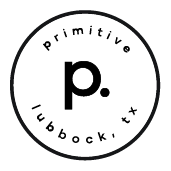connect
connect
BLOG Building Brand Authenticity: Why You Need it in 2021
Building Brand Authenticity: Why You Need it in 2021
POSTED BY Primitive | Jul 21, 2021

We’ve all had moments where reality didn’t come close to meeting our expectations. Whether it’s a Tinder swipe, a #pinterestfail, or a landscaping project, we’ve all felt the same kind of frustration that comes when something just doesn’t align with what we thought we were getting.
But it’s one thing when that misalignment occurs on a DIY project, and altogether another thing when we experience missed expectations with a brand we wanted to trust. We’ve all experienced the disappointment when a brand just doesn’t live up to what was promised, and that inauthenticity is a ticket to losing customers.
What Brand Authenticity is and Why it Matters
Gone are the days when you only had to worry about helping your business stand apart from local competitors. Part of living in a digital age means your competition enters the digital realm as well. Now your financial advisory company has to compete with local businesses as well as those across the country. In order to help your company stand apart online, you have to build a brand identity that will attract prospects and earn their trust. But in order to maintain that trust, you must also cultivate brand authenticity.
Every brand makes promises to their team, prospects, and customers. Those promises are in your mission and value statement, they’re in content marketing, and they’re in how you interact with your audience. Do you claim to be the most dependable landscaper around? Then be dependable. Is part of your value proposition that you will work to reduce your business's carbon footprint? Then change how you package and distribute your products. Have you shared with customers that you can increase their revenue by a certain percentage? Then deliver.
Brand authenticity seems intuitive, almost a no-brainer. And yet, how many of us have experienced discrepancies between what a brand tells us they will do and then what they actually deliver? It’s disappointing, and often it’s enough to turn us away from being a customer.
On the other hand, when a brand is authentic, we’re likely to be customers for life and to share our experience with our personal network. Our family recently needed some landscape work done and hired a local company to build a cement border around our driveway. Within less than 12 hours of reaching out, someone was at our property quoting us a price. Less than five days later, the border was complete. The entire time, everyone was great to work with: they were quick to communicate, worked hard, let us know of a few issues along the way, and still delivered within the time and price they had promised. Not only are they now guaranteed to earn our business in the future, we’ve also shared their company with multiple friends and family members.
Building an Authentic Brand Identity
As we mentioned above, brand authenticity is something that feels like it should be intuitive or effortless. But it’s not automatic, and it’s definitely not effortless. If you want to be authentic, you need a plan and the willingness to work hard to earn your prospects’ trust and respect.
Start with Your Company Culture
Your first thought in building brand authenticity might be to begin with your account management or service. But you actually need to begin with your culture. When you take care of your team, they are fully equipped to care for your customers. On other hand, if your team is overworked and underappreciated, how can they be expected to do whatever it takes to build and maintain a positive brand identity? If you’re wondering whether or not your company culture makes the cut, check out these six signs you can use to evaluate how you are doing.
Be Authentic in Your Marketing and Sales
It’s tempting to offer extreme promises in your marketing and sales process. Every business is eager to earn new customers, and it can be incredibly easy to tweak a proposal to include a service you don’t typically offer, or to mention a 100% guarantee in your marketing when that’s a mathematically impossible thing to do. But if you stretch the truth to win a prospect, or change your services just to earn one new client, how can you expect to stay authentic to your brand and consistently offer a service that customers will find delightful?
Instead, the very best thing you can do is be completely honest and transparent. For example, if your financial firm doesn’t do tax planning, don’t offer it in your marketing or in a sales pitch. This transparency ensures that you are cultivating and developing the right leads and prospects who are the best fit for your company.
Set Your Team Up to Deliver
Once you’ve laid the foundation for a strong company culture, and developed a plan for honest, intentional communication in your marketing and sales processes, then it’s time to do exactly what you have said you will do.
It’s important to note that while this is another thing that seems like it should be a given, few companies actually create any sort of plan to set their team up for success once they’ve earned a client’s trust. Just a few of the things you need to think about include:
- Responsibility. Who on your team is responsible for which service to your customers? How will you determine that the job is being done? Do you have one person in charge to make sure that all responsibilities have been delegated and is regularly communicating with clients and your team?
- Tools. Which tools does your team need in order to be successful? How will you ensure these tools are being used to their full potential?
- Analysis. It’s just not enough to try and do good work. You have to know whether or not your efforts are actually working for your customers. How will you measure and analyze your work so that you know where things are going well and where you need to make adjustments?
- Accountability. It’s a given that your team will make some mistakes. It happens for every company and every person. What’s most important is not trying to avoid or deny those mistakes, but holding your team accountable for them. If you make a mistake, own it and come up with a plan to fix it.
Essentially, building an authentic brand identity boils down to caring for your team well, communicating with prospects clearly, and then caring for your customers. Doing this will help you cultivate an authenticity that leads you to build lifelong relationships with your customers.
If you’re interested in learning more about building a brand that is authentic and trustworthy, download our free resource, Telling Your Brand’s Story Through Digital Marketing.
SHARE THIS POST:

About the writer, Primitive
The team behind On the Dot. is made up of creatives, strategists, and developers who give a damn. At Primitive, we craft digital solutions that help businesses grow from brand to backend. Every insight we share is backed by strategy, driven by results, and built to move your business forward.
